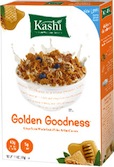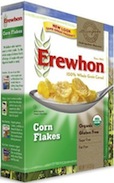
“Natural…”
One definition is: “Not altered, treated, or disguised: natural coloring; natural produce.”
Another says growing without human care, not cultivated as a natural prairie unbroken by the plow; existing in or produced by nature as natural turf; relating to or being natural as natural food.
Even the Natural Ingredient Resource Center offers a definition of natural ingredients that it recommends producers use when applying the “natural” label. Note: these are voluntary. The group suggests producers use ingredients that include plant, animal, mineral or microbial ingredients that are:
- present in or produced by nature
- produced using minimal physical processing
- directly extracted using simple methods, simple chemical reactions
- result from naturally occurring biological processes

Natural ingredients:
- are grown, harvested, raised and processed in an ecological manner
- are not produced synthetically
- are free of all petrochemicals
- are not extracted or processed using petrochemicals
- are not extracted or processed using anything other than natural ingredients as solvents
- are not exposed to irradiation
- are not genetically engineered and do not contain GMOs (genetically modified organisms)
- do not contain synthetic ingredients
- do not contain artificial ingredients including colors or flavoring
- do not contain synthetic chemical preservatives.
What images do you see when food is described as natural? Cows and sheep frolicking in lush green pastures? Lovely girls making butter in churns or turning wheels of cheese out of wooden molds? Golden brown loaves of bread being taken from a brick oven?

Those are the images Big Food would like you to have in mind. The problem is that what you imagine is a long way from reality!
When applied to meat and poultry, the USDA says “those products carrying the natural claim must not contain any artificial flavoring, color ingredients, chemical preservatives, or artificial or synthetic ingredients, and are only minimally processed (a process that does not fundamentally alter the raw product).”
The problem is that a new generation of natural processed meats could contain cultured celery extract. Is that considered natural? Yes. Does it solve the problem of nitrates and nitrites? No, because that “celery extract” is a source of nitrates and nitrites – preserving agents linked to an increased risk of heart disease, cancer and Type 2 diabetes. And for children and pregnant women who are told to avoid nitrates and nitrites, these natural products could even be risky.
Aside from meat products, there are no restrictions for other foods labeled natural. And, according to a new report by the Cornucopia Institute, the term is nothing more than meaningless marketing hype promoted by corporate interests seeking to cash in on the consumer desire for food produced in a genuinely sustainable manner.

They are indeed cashing in; often charging double – or more – for products labeled natural as for those produced under organic certification.
Federal law requires that organic food products be produced promoting ecological sustainability, without the toxic inputs and genetically engineered ingredients common in the conventional food system.
Unlike the organic label, no government agency, certification group or other independent entity fully defines the term “natural” on processed food packages or ensures that the claim has merit.
Increasingly, organic products are forced to compete with products that claim to be “natural.”
And food marketers know exactly what they are doing when they use the natural label. In an interview I conducted for another publication several years ago, a packager of nuts, dried fruit, and granola told me, “To me natural means I haven’t done anything to the product, I just package it. I have no idea what is done to it before I get it.”
So do you want to buy natural products and to save money? Look for the organic certification on the package.

Great roundup of those in industry attempting to define “natural.” We got wind this week that the Natural Products Association is going to define natural by releasing a certification similar to its Natural Seals for home and personal care products. More details here: http://newhope360.com/regulation-and-legislation/npa-define-natural-food-certification
There are a lot of folks looking forward to some kind of consistency. Perhaps this is a first step.
Thanks,
Gail Nickel-Kailing
Co-Publisher/Editor
GoodFood World
The Cornucopia Institute warns that cheap, “Natural” food products deceive consumers because they might contain toxic chemicals. But wait just a second here… there’s no field testing in the organic industry. None. So how do we know the certified-organic food Cornucopia prefers is even purer and more nutritious as claimed?
Cornucopia also warns that major agribusinesses are competing with the poor old organic industry. What they fail to mention is that most organic food sold in grocery stores these days is actually imported from places like China, Mexico, Brazil and Chile, and too darn bad for the local, family organic farmer.
I’m big a supporter of the organic movement. I grew up on an organic grain farm and worked for five years as an organic inspector. And it saddens me to say that the certification of “organic” food is nothing more than a glorified marketing scheme. If you spend your hard-earned grocery budget on organic food, I’m sorry to be the one to tell you that there’s no guarantee whatsoever that you’re getting anything that’s purer or more nutritious than regular food. Buy from a local farmer that you know! And do not under any circumstances ever buy organic from a grocery store.
You see, the United States Department of Agriculture’s much-ballyhooed National Organic Program (NOP) is administered under the rubric of the USDA’s Agricultural Marketing Service, not its Research, Inspection, Nutrition, Safety, Risk Management or Conservation services. Don’t consumers and the environment deserve a bit of scientific assurance?
Cornucopia knows full well that there’s no field testing. In fact they think the USDA should maybe start spot testing, but they don’t think there’s any point testing all organic farms and processing facilities even though doing so would cost a tenth what the current bureaucratic system costs.
So, with all due respect to the Cornucopia Institute which claims to stand up for the right of family-scale organic farmers, I really have to ask… Have you ever heard that expression about people who live in glass houses?
Please feel free to post my comments on your site.
All the best, and stay organic!